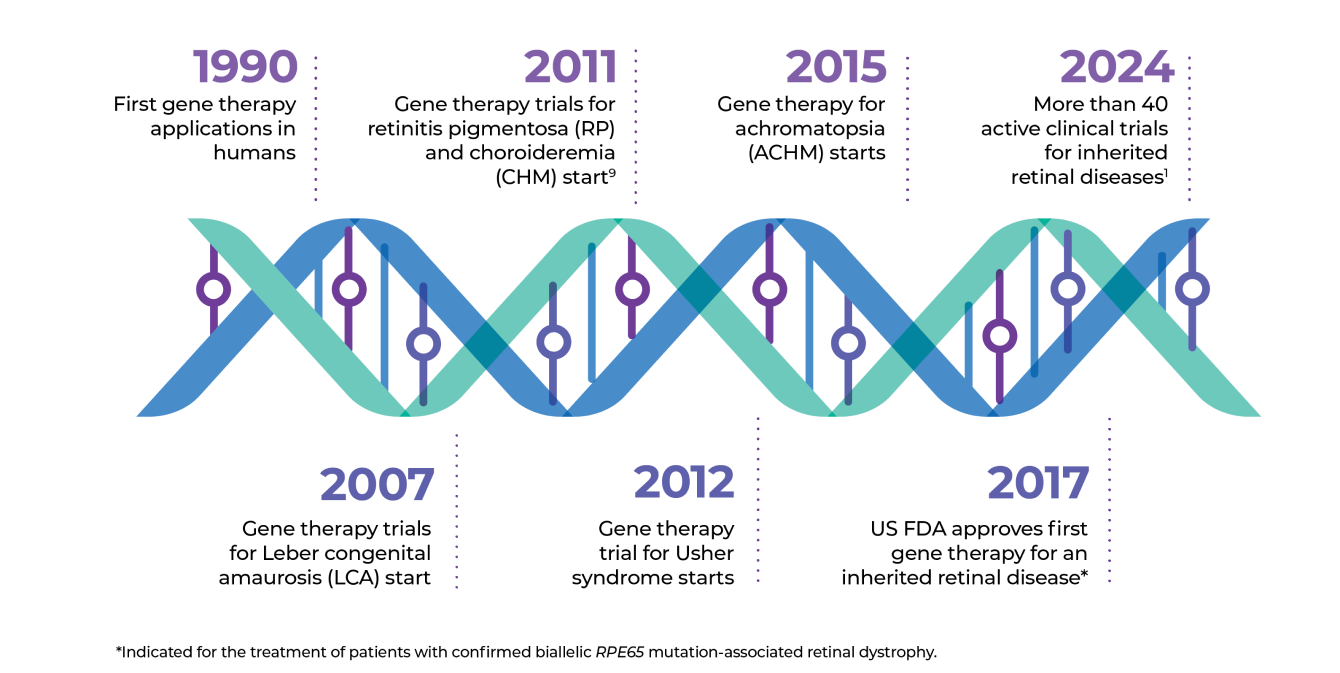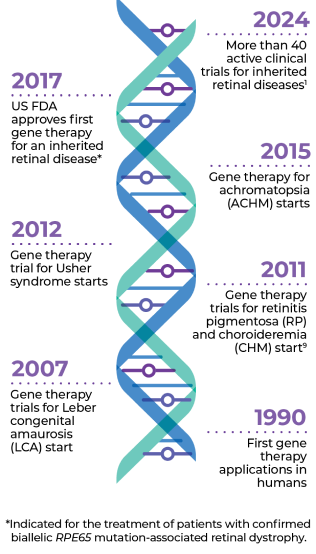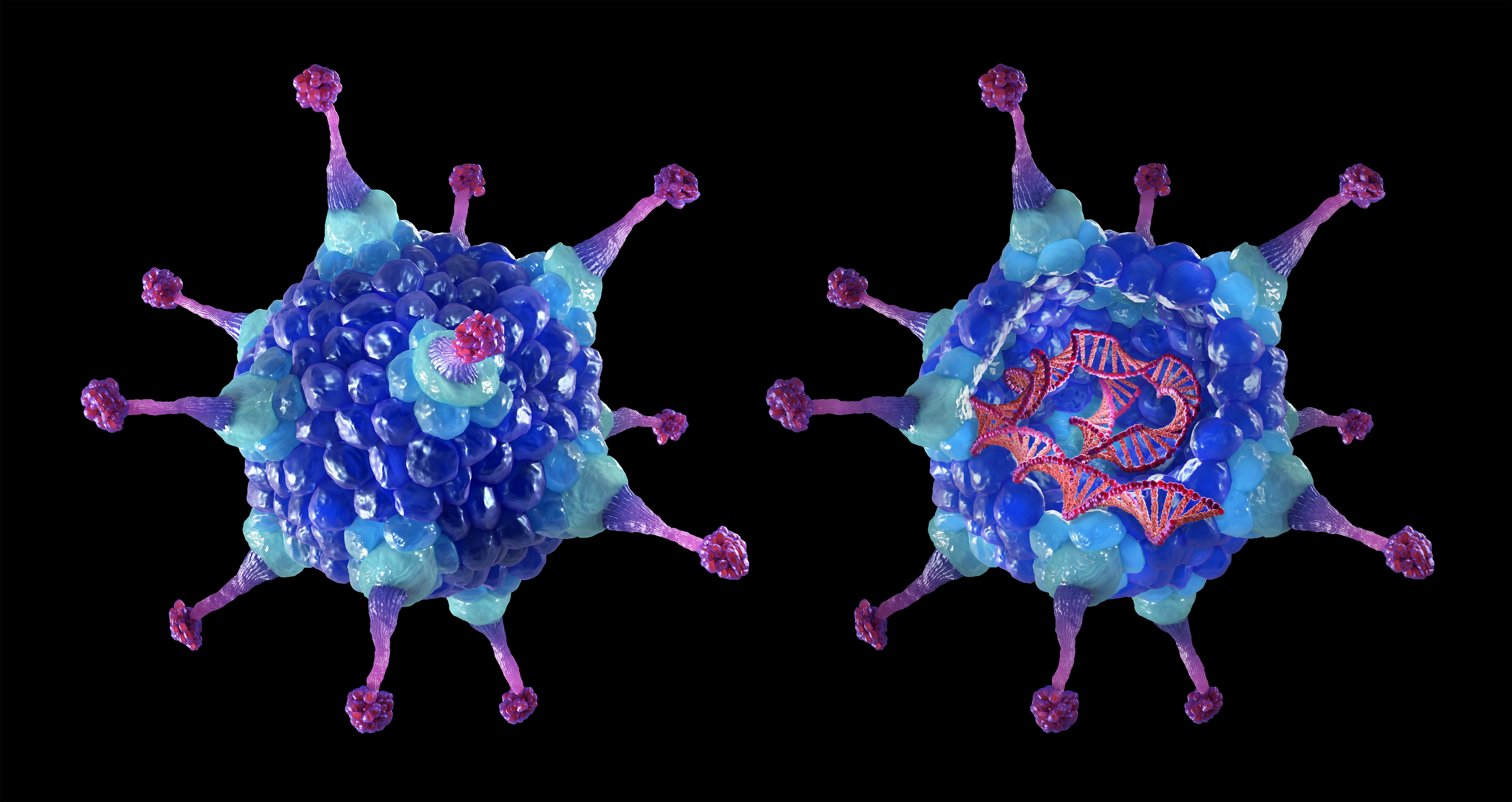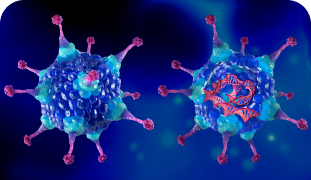Everything excites me about the idea of gene therapy and the ability to offer a sense of hope to people affected by inherited retinal diseases.
– Meghan, ophthalmic genetic counselor
Over 40 clinical trials are either completed or underway for different types of inherited retinal diseases (IRDs), such as RP, XLRP, LCA, ACHM, USH, and Stargardt disease1
Today, there are FDA- and EMA-approved gene therapies on the market, including one for an IRD caused by biallelic variants in the RPE65 gene1,2
Testing for IRDs now includes gene sequencing for more than 270 IRD-related genes. Innovative vision-guided mobility assessments (VMAs) can now more accurately measure functional vision3-8


Explore the latest clinical trials that are underway and be inspired by advancing science
Novel gene therapy trials are underway for a wide range of IRDs, and more are on the horizon. Retinal surgeons may soon have more advanced treatment options to add to their armamentarium. There are several approaches to gene therapies under investigation, such as¹²:


During gene replacement therapy, also known as augmentation therapy, a retinal surgeon inserts normal copies of the mutated gene into the host cells.¹³


Gene editing corrects the gene variant directly within the host DNA.¹⁴


RNA editing edits the RNA, not the DNA. This enables the editing of pathogenic variants at a transcript level.¹⁴

Everything excites me about the idea of gene therapy and the ability to offer a sense of hope to people affected by inherited retinal diseases.
– Meghan, ophthalmic genetic counselor

Everything excites me about the idea of gene therapy and the ability to offer a sense of hope to people affected by inherited retinal diseases.
– Meghan, ophthalmic genetic counselor
ACHM=achromatopsia; EMA=European Medicines Agency; FDA=Food and Drug Administration; LCA=Leber congenital amaurosis; RP=retinitis pigmentosa; USH=Usher syndrome; XLRP=X-linked retinitis pigmentosa.
Find compelling case studies, expert opinions, patient support communities, and more in our comprehensive resource center.
Get access to genetic counselors and connect with a genetic specialist in your area.